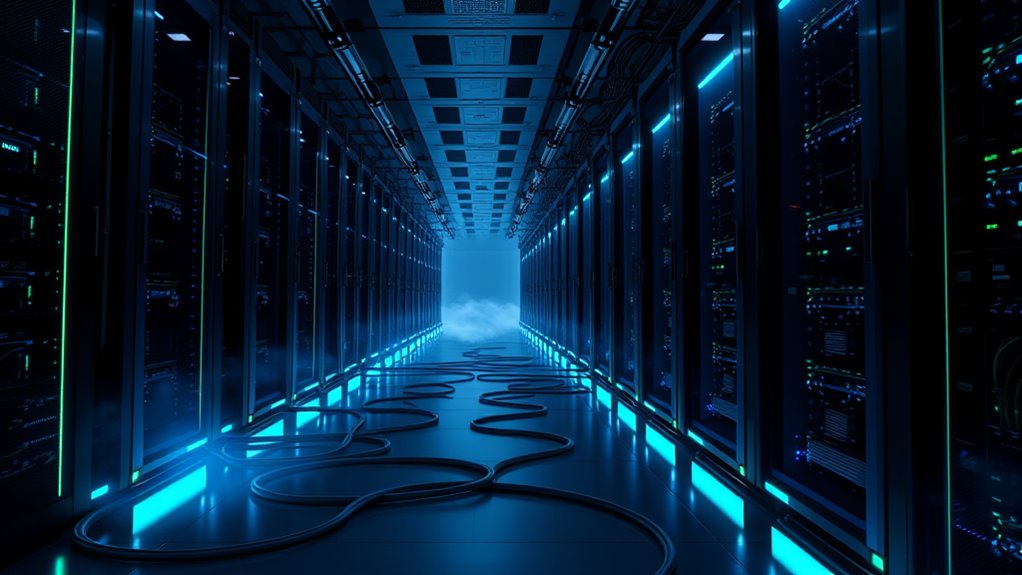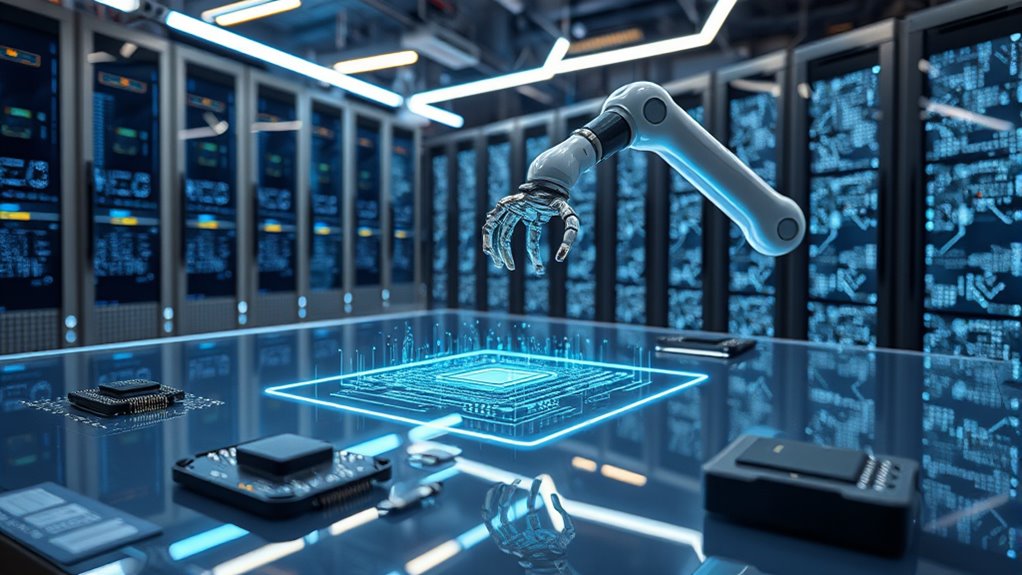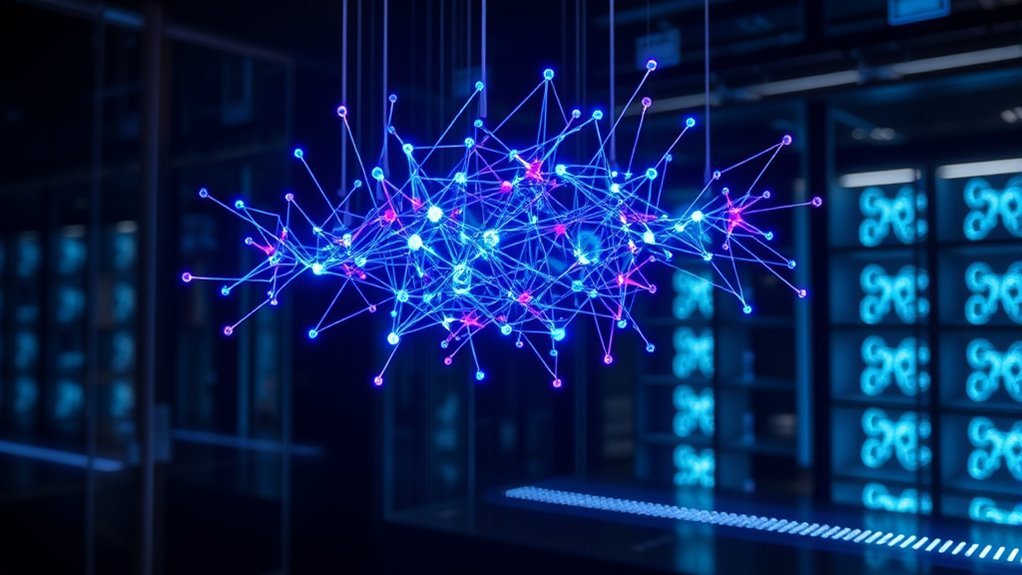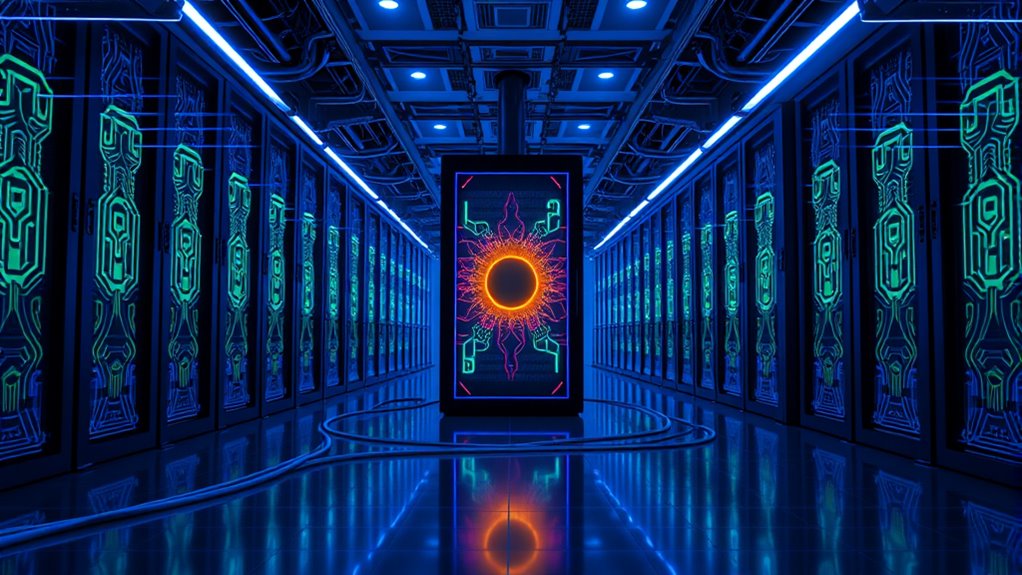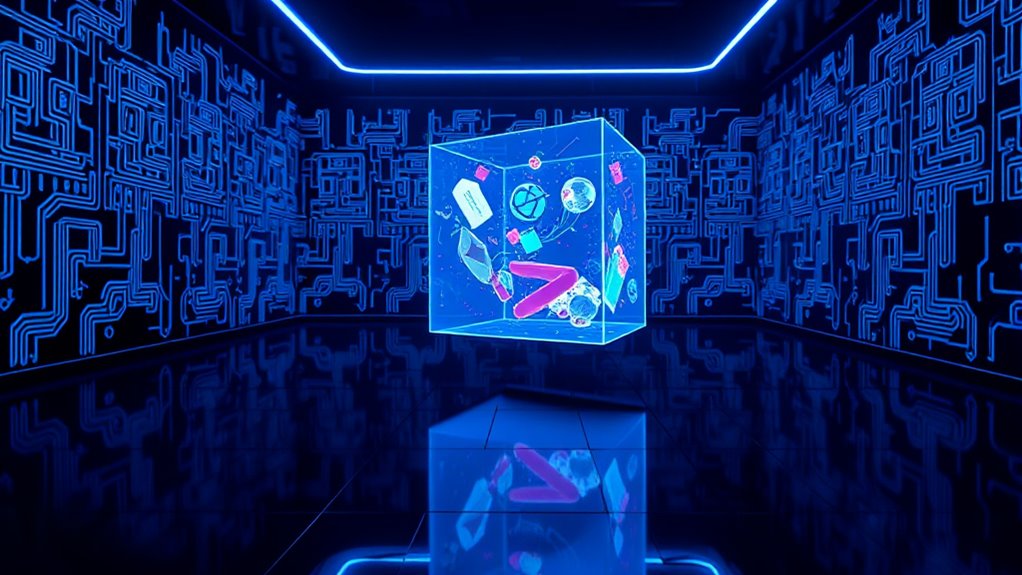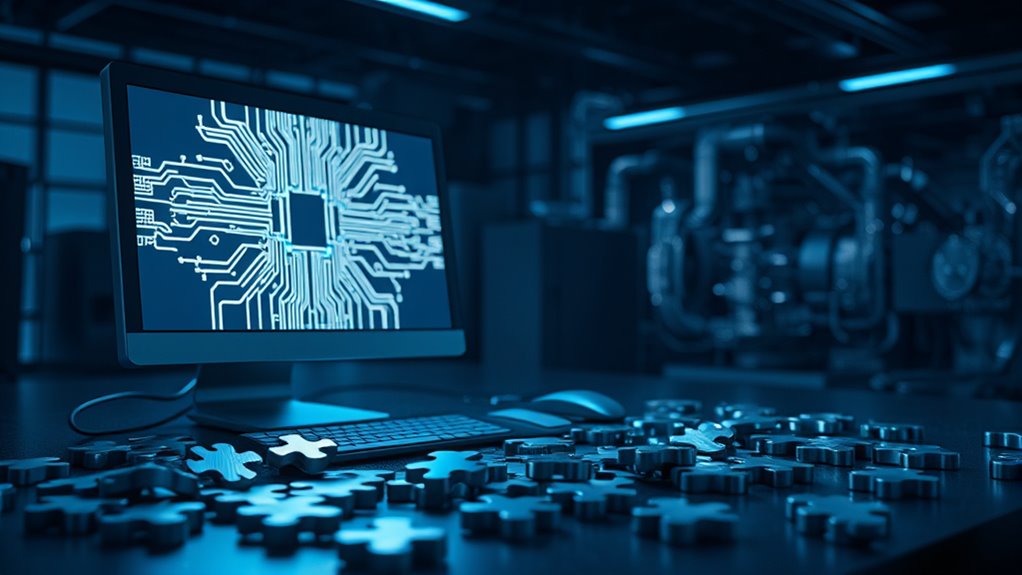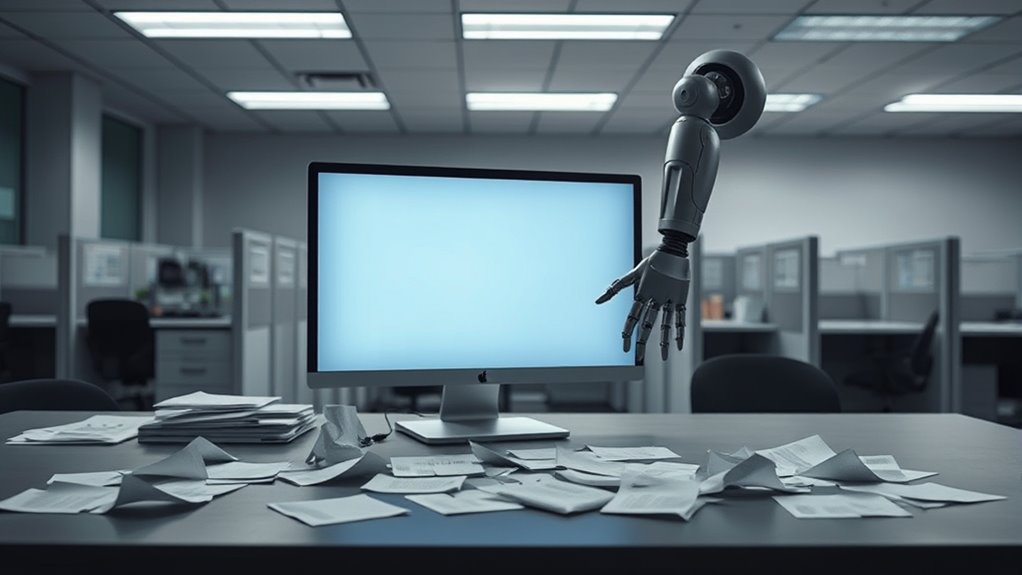While technology keeps advancing, there are still many jobs that AI can’t take over. Machines are getting smarter, but they struggle with things like feelings, creativity, and human connection. Some skills just can’t be copied by a computer. Emotional intelligence, for instance, is crucial in many roles. AI can’t truly understand or show empathy like humans can.
Despite tech advances, AI can’t replace jobs needing empathy and human connection. Machines lack the emotional intelligence humans naturally possess.
Creativity in arts and design is another area where people shine. Critical thinking and problem-solving also need human judgment, something AI isn’t great at. Despite predictions that AI may impact 80% of the US workforce with at least 10% of tasks affected, human judgment remains irreplaceable in many complex scenarios.
In health and wellness careers, human touch is essential. Doctors, nurses, and surgeons interact with patients in ways AI can’t match. Psychologists help with mental health, offering support that machines can’t give. Physical therapists work hands-on with people, and midwives provide personal care during childbirth. Veterinarians also play a vital role, providing specialized animal care that requires empathy and expertise beyond AI’s capabilities. Even in medical fields, AI can assist with diagnostics, but it cannot replace the personal patient interaction needed for holistic care.
Even pharmacists use judgment to guarantee safe medication use, a task too complex for AI alone.
Creative fields are another area where humans stand out. Artists, musicians, and performers express emotions that AI can’t replicate. Painters and sculptors use imagination to create unique works. Writers craft stories with deep feelings, and choreographers design dances with empathy and flair.
These jobs rely on a human spark that technology can’t copy.
Education is also a field where people are irreplaceable. Teachers in universities and vocational schools give personal feedback. Special education teachers adapt to each student’s needs. Academic advisors guide students with tailored advice.
Educational leaders manage schools, handling challenges AI can’t solve.
Skilled trades and construction need human skills too. Workers building frames or welding metal use precision and spatial thinking. Mechanics fix machines with diagnostic know-how. Electrical engineers solve design problems, and construction managers keep sites safe and on track.
Service and personal care jobs depend on human connection as well. Customer service workers understand unique needs. Personal trainers customize workouts. Hotel staff and food servers handle varied requests with a personal touch.
Social workers offer emotional support that AI can’t provide. Even in business and law, roles like managers and legal experts rely on relationships and strategic thinking. AI may help, but it can’t replace the human element in these careers.

